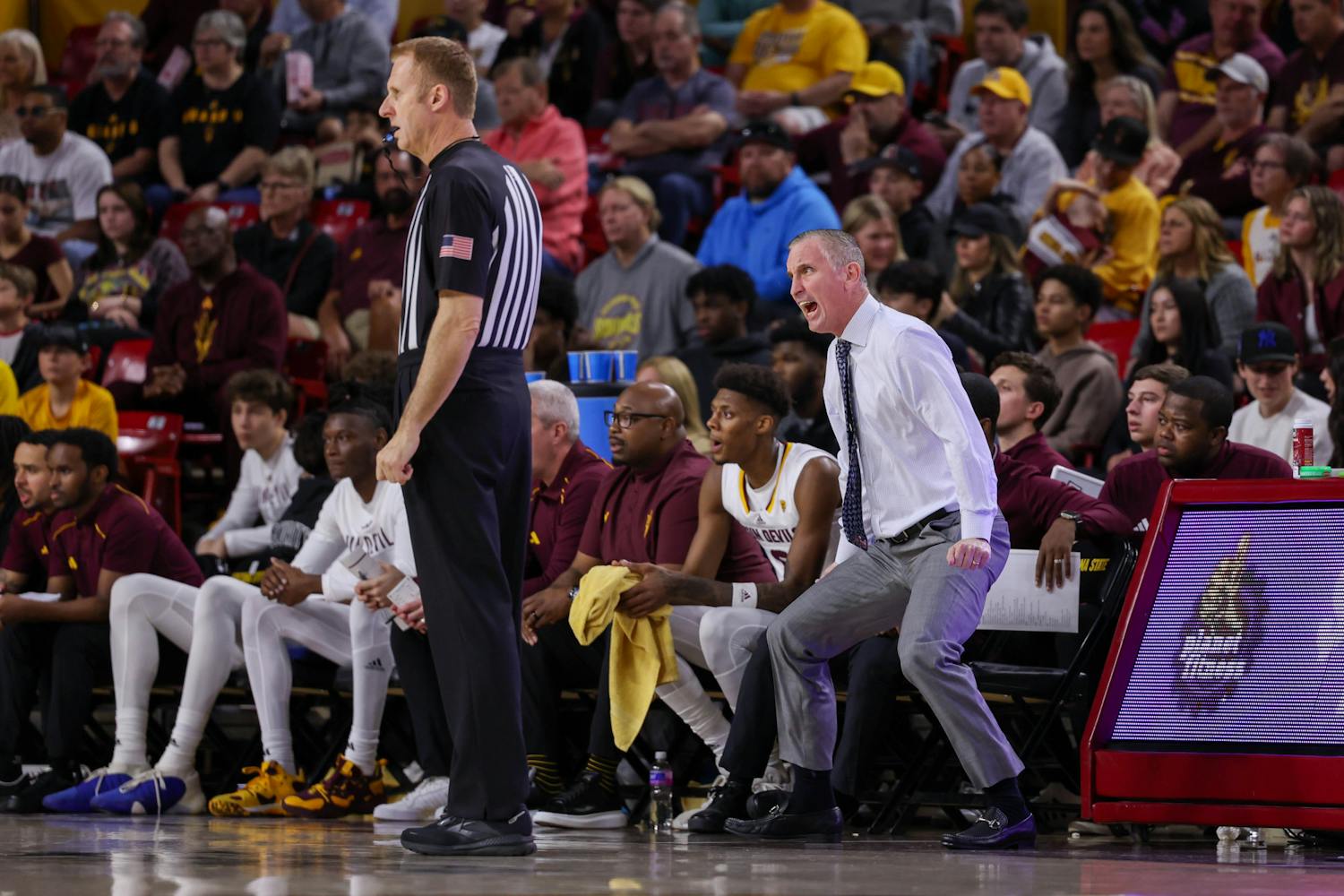On Tuesday, the Tempe Undergraduate Student Government Senate did not overturn the presidential veto of a bill passed by USG on Feb. 19. If passed, Senate Bill 62 would have denied Senate seats to the Barrett Honors College Council.
Senate Bill 62 would only allow USG Senate seats for degree-awarding colleges at ASU, which does not include Barrett or the University College. Although these colleges can offer classes and perform other services, they do not award degrees to students.
According to USG bylaws, “The voting membership of the Senate shall consist of a proportional number of Senators from each Degree-awarding College housed primarily at the Tempe Campus.”
The debate over SB 62 lies in the true intention of the bylaws and the inclusion of colleges that do not award degrees.
On Feb. 19, the USG Senate passed a bill that would have amended the bylaws to allow for Senate representation by Barrett, the Honors College and University College.
Kristen Hermann, associate dean for Student Services at Barrett, said that the Honors College not awarding a degree to its students does not mean it should be excused from representation in USG.
“It’s about how we best provide the student experience for ASU students,” she said. “Barrett is a college just like the (College of) Liberal Arts and Sciences or Herberger (Institute for Design and the Arts).”
Hermann said Barrett is a model for honors programs around the country and the world.
On the same evening that the USG Senate passed SB 62, USG President Mark Naufel vetoed it. His action was upheld by the Senate on Tuesday.
Naufel said the bill was rushed into passage and would unfairly disqualify applicants from the upcoming USG Senate election.
“It would be a disaster if we overturn the veto. I would have to tell six candidates that they can’t run,” he said. “Let’s just take a deep breath and slow down.”
Senate President Joshua Watson, a proponent of SB 62, said only one student was on the ballot at the time of Naufel’s veto and that the candidates would still be able to run, but they would bot be able to do so as representatives for Barrett, the Honors College.
“It’s not like they wasted money on campaigning stuff or don’t get to run,” he said. “You get to run, but for a different college.”
Proponents of SB 62 said Barrett would still be represented in the USG Senate, even if the college was not directly represented. Many members of USG representing other colleges are members of the honors college.
Representatives from Barrett, the Honors College said without Senate seats, it would be impossible to guarantee the representation of Barrett students.
Natasha Yenina, president of Barrett, the Honors College Council, said the honors college has its own staff, facilities and faculty and even hosts its own graduation.
“It would be completely unfair for us to take away the voice of such a large part of the University,” she said. “We are minimizing the role of the Barrett, Honors College and taking away their representation.”
Proponents of SB 62 said they were concerned about Barrett senators receiving double representation in USG by having representation from Barrett and any college containing a representative who is a member of the honors college.
Yenina said Barrett monitors student voting for USG senators and does not allow students to vote for both types of representatives.
“You cannot vote for both — the double representation concern is a myth,” she said.
The USG Senate needed a two-thirds majority vote to overturn Naufel’s veto and pass SB 62. Ten senators voted to overturn the veto, nine voted against overturning the veto and three abstained from voting.
USG also passed SB 66, which guarantees funding for Barrett and the University College, regardless of their representation in the Senate.
The Senate representation of colleges that do award degrees still conflicts with USG bylaws, and SB 62 has not died despite the upheld veto. Because the veto was not overturned, the interpretation of the bylaws would resemble their interpretation in previous years, and the Honors College will still have senators.
It will be up to the USG Supreme Court to determine the intent of the bylaws and settle the issue if proponents of SB 62 decide to bring the bill to the court.
USG also passed SB 69, which formally expresses its opposition to the changes made to Sparky.
According to the bill, USG is unhappy with the method in which the changes were made, with limited student input.
You can reach the reporter at jwthrall@asu.edu or follow him on twitter at jthrall1



